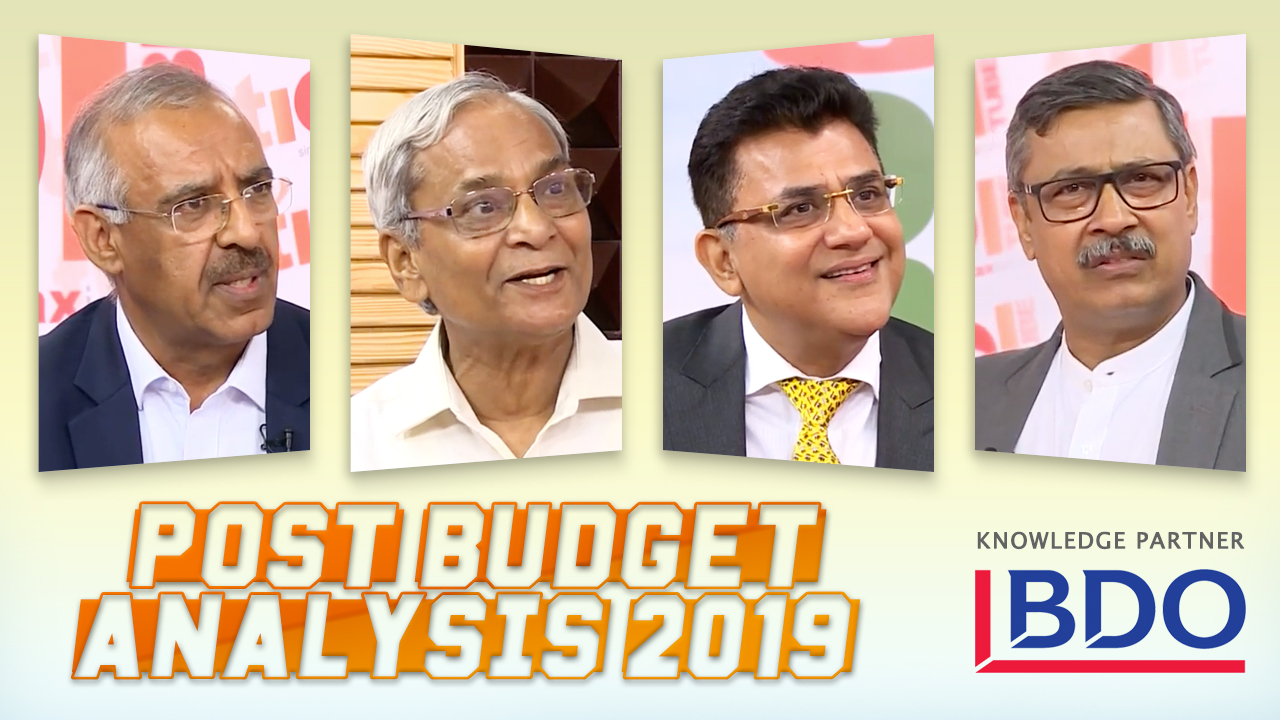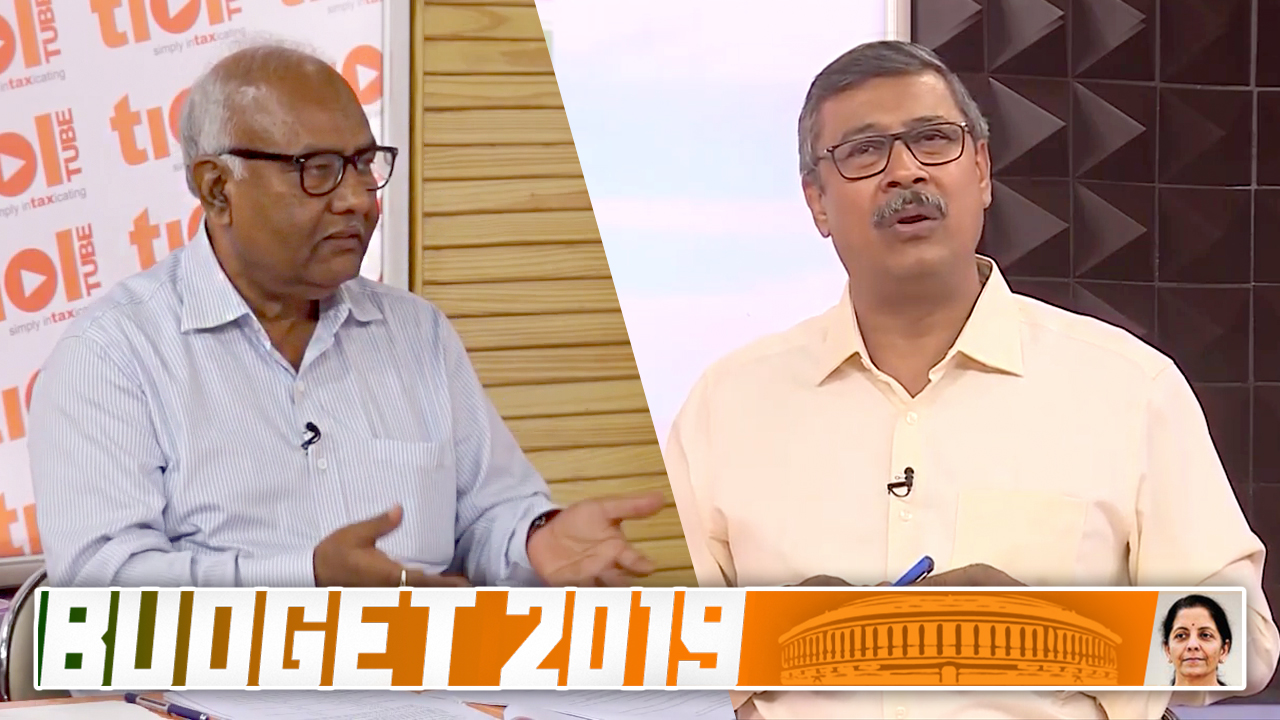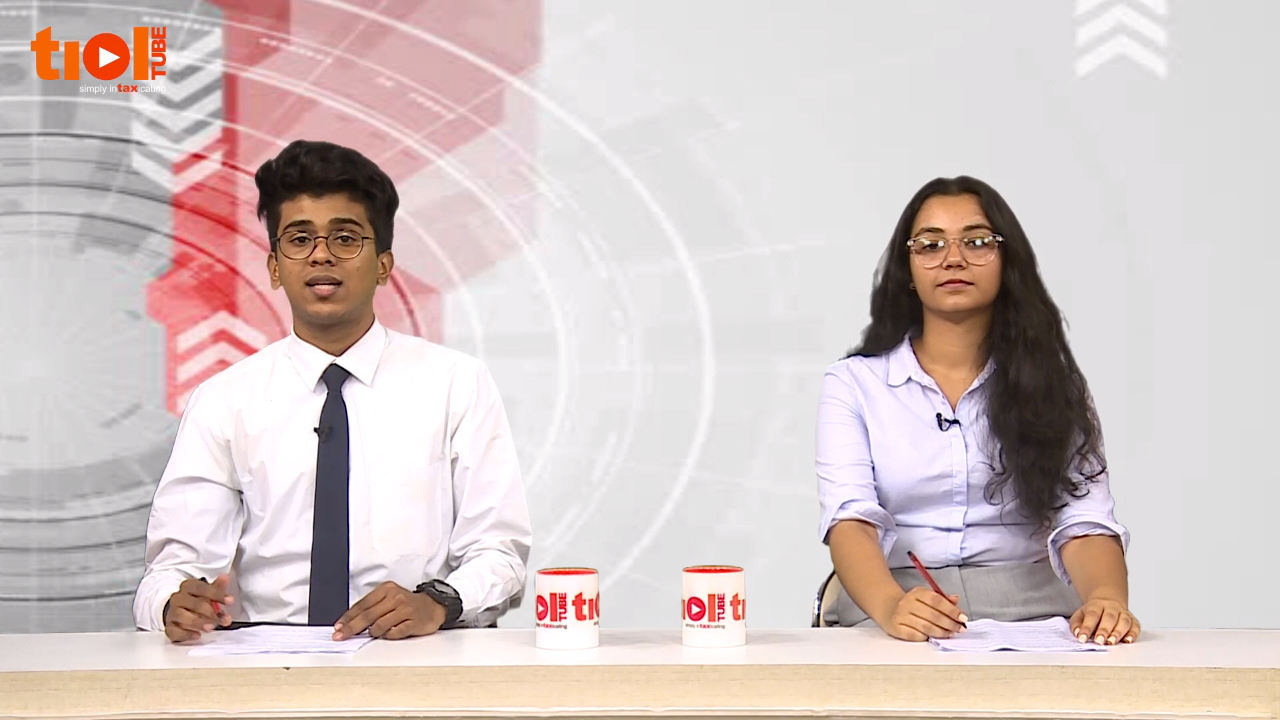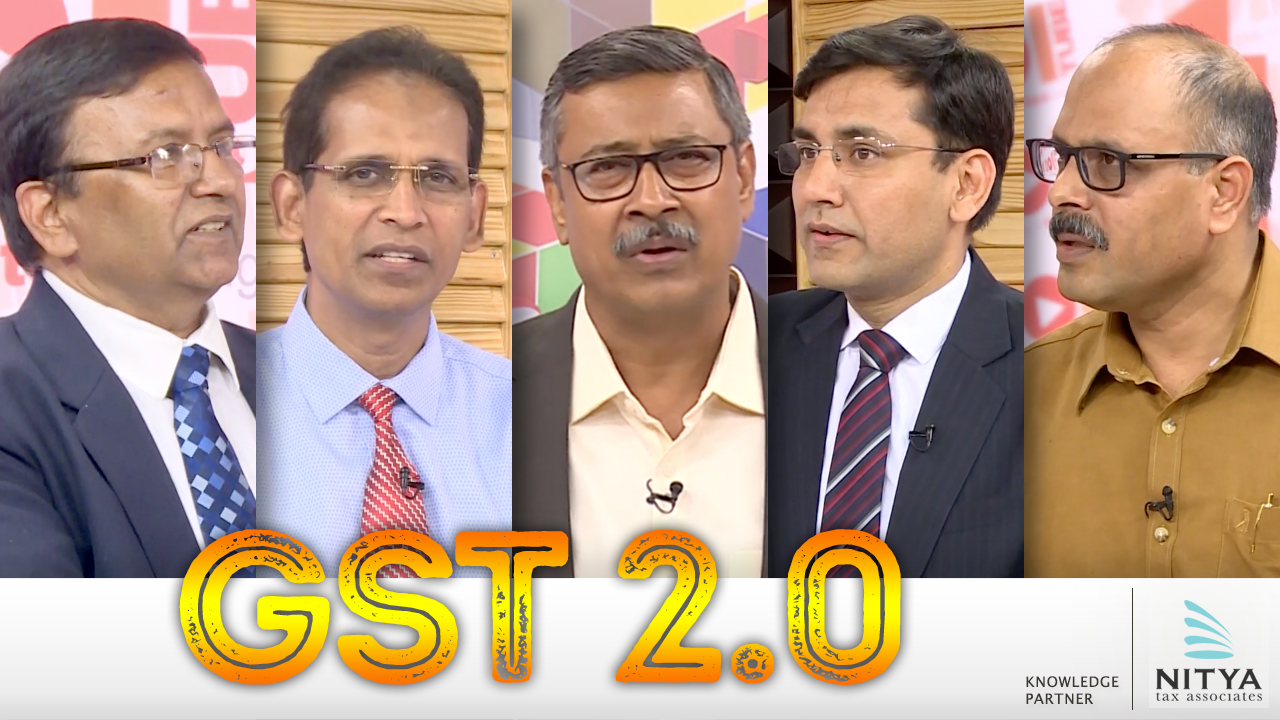|
SERVICE TAX
2019-TIOL-1959-CESTAT-AHM
Greenwood Club And Resorts Vs CCE & ST
ST - The assessee is involved in providing taxable service under the category of Mandap Keeper services - The assessee was giving space to various corporate and others for the purpose of holding conference - The assessee giving space for conference with, or without, food and lodging for the participants - The assessee was discharging service tax under the category of Mandap Keeper service when they were giving place for conference only - However, when they were providing space for conference along with food and/ or rooms, they were not discharging service tax - Assessee argued that no tax under the category of Mandap Keeper service is leviable as in those cases no amount was charged for providing space for conference facility and only billing is done for food and/ or rooms - He further pointed out that cum-tax benefit has not given to the assessee - They argued that they were entitled to abatement however the same was denied on the ground that assessee have availed Cenvat credit - During the period 2001 to 2006, there was no restriction on availment of Cenvat credit - However, after 01.03.2006 restriction regarding availment of Cenvat credit was brought in vide Notfn 1/2006-ST - Prior to this period, vide Notfn 12/2001 a blanket abatement of 60% was granted without any restriction regarding availment of Cenvat credit - Tribunal in case of Hotel Amarjit Pvt. Limited - 2014-TIOL-589-CESTAT-MUM has settled the issue regarding liability of catering provided with Mandap Keeper service - The service provided by assessee of place for conference along with catering and/ or room is liable to tax under category of Mandap Keeper service at the material time - The assessee have not charged any amount separately for the facility and in those circumstances, assessee suggested that service tax at the prescribed rates for such facility at the material time can be taken - Assessee pointed out that they had specified charge at different period for providing the space for conference - Thus in case where assessee has provided mandap keeper service along with food, the assessment can be done after granting abatement in terms of relevant Notfn 12/2001-ST and 1/2006-ST - Therefore, in case where there is provision of stay along with food and conference facility, best judgment method can be applied to arrive at the value of conference facility, after necessary evidence is produced by assessee - The assessee also claimed that they have availed Cenvat credit only for the period prior upto 01.03.2006 and not thereafter - In those circumstances, the benefit of Notfn 1/2006-ST cannot be denied to assessee - In terms of decision of Gujarat High Court in the case of Raval Trading Company - 2016-TIOL-112-HC-AHM-ST the penalty imposed under Section 76 is set-aside - It is seen that the assessee had not declared the correct figures in their returns filed with the department and therefore, no benefit of limitation can be extended to the assessee - In view of the settled law, the benefit of cum-tax value cannot be denied to the assessee and the demand is required to be revised on that count: CESTAT
- Appeal partly allowed : AHMEDABAD CESTAT
2019-TIOL-1958-CESTAT-MUM
Lear Automotive India Pvt Ltd Vs CST
ST - By an agreement between the assessee and M/s Lear Corporation, USA for usage of software, assessee agreed to pay annual maintenance charges which M/s Lear Corporation, USA required to pay to the vendors of the softwares - These charges which have been paid by assessee to M/s Lear Corporation, USA has been claimed as software usage charges and not maintenance charges for the software - The assessee has submitted that the Commissioner has failed to appreciate that under the software usage agreement, the said amount was required to be paid which is equivalent to the maintenance charges paid to the vendors of software by M/s Lear Corporation, USA - No evidence found in support of the claim of assessee that what they were required to pay M/s Lear Corporation, USA was not the maintenance charges for usage of the software but the charges for the software - On the other hand, M/s Lear Corporation, USA had paid to the vendors maintenance charges of the software which they ultimately collected from the assessee - Therefore, the Commissioner has rightly classified the services received by assessee under the category of management, maintenance, or repair service under Section 65 (105)(zzg) read with Section 65(64) of FA, 1994 - The next issue relates to the question whether the services received through internet is taxable from 01.03.2008 as claimed by assessee in their alternative submissions - Issue has been considered by this Tribunal in case of Vodafone Cellular Ltd - Following the said decision, assessee is required to discharge service tax from 01.03.2008 - Consequently, the matter is remanded to the Adjudicating Authority to recalculate the demand for the period from 01.03.2008 onwards - Also, imposition of penalty under Section 78 of FA, 1994 is unwarranted - However, penalty under Section 76 and 77 are imposable on assessee, hence sustained, which shall be determined on re-computation of the demand for the period after 01.3.2008: CESTAT
- Appeal partly allowed : MUMBAI CESTAT
2019-TIOL-1957-CESTAT-MUM
Trig Guard Force Ltd Vs CST
ST - The assessee-company is registered for providing services categorized under Security Agency Services - The Revenue gathered intelligence that the assessee was collecting service tax from their clients but were not depositing the same - Upon investigation, an SCN was issued proposing duty demand with interest & imposition of penalties - On adjudication, the demands were confirmed, upon which the present appeals were filed by the assessee - The Revenue also filed cross objections.
Held: The issue at hand pertains to the quantification of interest & penalties - Hence the matter can be remanded for determination of duty demand with interest & penalties - Except for quantification of the amounts in respect of all the other counts, the O-i-O is upheld on merits, limitation and imposition of penalty - As the matter is quite old, the adjudicating authority is directed to determine the quantum of tax to be paid with interest & penalties within 4 months' time: CESTAT
- Case remanded : MUMBAI CESTAT
CENTRAL EXCISE
2019-TIOL-1956-CESTAT-MUM
CC, GST Vs Sandoz Pvt Ltd
CX - The assessee is an 100% EOU and filed cash refund of accumulated unutilized CENVAT Credit under Rule 5 of CCR, 2004 in accordance with procedure prescribed under Notfn 5/2006-CE(NT) , for a total amount of Rs.32,33,505/- for the month of November 2009 - After necessary enquiry/ investigation, the total cash refund was reduced to Rs.32,18,727/- - Revenue's contention is that both the authorities below have not examined in detail the inputs lying in stock, and the credit attributable to such cash refund claimed by assessee - The Adjudicating authority, after analyzing the claim on the basis of report of Range Supdt., reduced the cash refund of accumulated CENVAT Credit and allowed the eligible amount - No contrary evidence has been placed by Revenue rebutting the finding of Adjudicating authority nor any subsequent report of competent authority placed on record to discard the earlier report of the Range Supdt. - The contention of Revenue is devoid of merit - Also, now it has been a settled principle of law that in considering the cash refund of accumulated credit, there is no requirement of one-to-one co-relation of inputs to the output exported during the relevant quarter - Revenue's appeal being devoid of merit, accordingly rejected: CESTAT
- Appeal rejected : MUMBAI CESTAT
2019-TIOL-1955-CESTAT-MUM
Su Motors Pvt Ltd Vs CCE
CX - Assessee cleared PD Pumps to M/s Mohini Electricals Ltd., who was awarded a contract by "Delhi Jal-Board" for supply of goods as per Contract Agreement under the Certificate issued by Deputy Commissioner (North West) - Revenue challenged the exemption on the grounds that supplies made by assessee are for setting up of reservoir and pumping station and not for water treatment plant as envisaged in the notification - Dy. Commissioner (South West) Government of NCT of Delhi has issued a certificate, regarding the work, related to "construction of UGR/DPS at Daulatpur Village, construction of ground reservoir and pumping station at Avantika, "construction of UGR/DPS at Janakpuri", undertaken by Delhi Jal Board, mentioning that the contract was awarded to M/s. Mohini Electricals - The certificate categorically mentions that materials/goods required to be sourced by M/s. Mohini Electricals, shall be eligible for exemption under Notfns 47/2002 and 3/2004 as the case may be - The assessee have supplied the goods accordingly under various invoices to M/s. Mohini Electricals - It is apparent that exemption is available for carrying out any process that would make water fit for human or animal consumption - Without a reservoir there would be no scope for water treatment - Therefore, the motors supplied by assessee to be held to have been used in relation to water treatment plant only - It is not the case of department that reservoir is meant for supply of water for Industrial purposes - In the absence of the same, assessee is eligible for exemption claimed - Tribunal in case of Ion Exchange (I) Ltd. - 2006-TIOL-1721-CESTAT-MAD held that gassing, de-gassing and pumping of water for the air level is also integral part of water treatment - The facts of this case are similar to the case of assessee - Going by the ratio, assessee is eligible for exemption on pumps supplied for purpose of construction of reservoir and pumping station which are ultimately used for supply of water for human or animal consumption: CESTAT
- Appeal allowed : MUMBAI CESTAT
CUSTOMS
2019-TIOL-1954-CESTAT-MUM CC & CE Vs Mohd Ashraf Armar
Cus - Assessee was caught red-handed from Nagpur Air Port while carrying 1200.950 gm of gold beneath his socks to evade Customs duty - Proceeding was initiated against him and order was passed for absolute confiscation of seized gold along with penalty under section 112(a) and 112(b) and penalty of Rs 75,000/- u/s 114AA of Customs Act, 1962 - In appeal before Commissioner (A), he modified the O-I-O by setting aside absolute confiscation and imposing fine of Rs 5,50,000/- under section 125 (I) of Customs Act, 1962 subject to payment of appropriate customs duty along with interest in terms of Section 125 (2) of Customs Act, 1962 - In the definition of prohibited goods in terms of section 2(33) of Customs Act, 1962, any such goods means any such restricted and prohibited goods ant not any other goods - It is in this contest the whole analyses of prohibited goods is made by Apex Court and not in respect of any other goods other than prohibited and restricted goods - Gold being a permitted goods for importation, cannot be said to be restricted goods in applying such an interpretation but ceiling on the maximum quantity that could be imported could never be equated with restriction or prohibition to such importation - Admittedly, assessee's intention to evade duty by suppressing such import is apparent on record for which Commissioner (A) has rightly confirmed fine and penalty under relevant provisions of Customs Act but absolute confiscation of gold, which is permitted to be imported to India, solely on the ground that it was brought in concealment cannot be said to be in confirmity to law or contradictory to decision of Apex Court given in Om Prakash Bhatia's - 2003-TIOL-06-SC-CUS case: CESTAT
- Appeal dismissed : MUMBAI CESTAT
2019-TIOL-1953-CESTAT-MUM
Vijay Silk House Pvt Ltd Vs CC
Cus - Assessee had imported Mulberry Raw Silk after completion of export obligation and claimed duty exemption for quantity mentioned in advance licence of DEEC - The Collector of Customs denied the duty exemption of duty on full quantity of Raw Materials imported upon segregating Mulberry Dupion Silk fabric from Mulberry Raw Silk fabric and partly allowed exemption of duty that corresponds to Mulberry Raw Silk fabric and not Mulberry Dupion Silk - Assessee challenged the said order on the ground that during relevant time as per public notice dated 6th March 1989 both Mulberry Raw Silk of any grade and Dupion yarn were merged into a single category of raw material - Going by Appendix 13C of Import/Export policy of 1988-91 and public notice, on which heavy reliance is placed by assessee, Mulberry raw silk of any grade (other than dupion yarn) and mulberry dupion which were distinguishable in Appendix 13C got merged by public notice 104-ITC that amended Appendix 13C and brought both categories into one description of raw material - Further, it was contented by assessee even before Collector of Customs that in first schedule to Customs tarrif Act, 1975, no distinction is made between mulberry raw silk and mulberry dupion silk and therefore the distinction between two was artificial having no legal basis - He also pointed out that dupion is also a type of mulberry, the only difference between raw silk and dupion yarn was that while raw silk contains fine verity yarn, dupion yarn was not so fine - Further, vide notfn 40/90-93, interchangability of mulberry raw silk with dupion yarn was withdrawn and prior to that both were treated as identical, in support of which clarification dt. 19-7-90 of export Commissioner Shri Lakhania concerning permission to importers for import of either mulberry raw silk or dupion silk, was referred to by assessee - Pressing reliance on Supreme Court's judgement in the case of Titan Medical System Pvt. Ltd. - 2003-TIOL-42-SC-EXIM , he pointed out that Apex court, while extending benefit of duty exemption, had held that objective of Duty Exemption Scheme and eligibility was for the advancement of export and once advance licence is issued, the Customs authority cannot refuse exemption on an allegation that there was misrepresentation and therefore, it was the licencing authority who can take steps on that behalf and not the Customs authority - Conversely, it is the Commissioner of Customs who hold a finding that benefit of duty exemption cannot be granted to the whole lot of products as exemption notification was not applicable to the imported goods despite the fact that benefit of licence was supposed to be extended as per clarification issued by Commerce Ministry and Export Commissioner concerning interchangeability of both the raw materials and assessee was issued inspection certificate by Central Silk Board that goods exported were 100% natural silk fabrics - Assessee is entitled to duty exemption in full for the whole lot of inputs which is under the dispute: CESTAT
- Appeal allowed : MUMBAI CESTAT |
|









